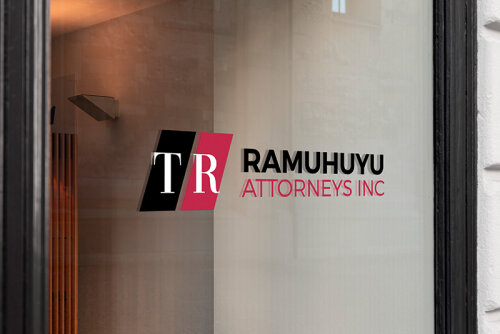Best Lawyers in Thohoyandou
Share your needs with us, get contacted by law firms.
Free. Takes 2 min.
List of the best lawyers in Thohoyandou, South Africa
South Africa Legal Questions answered by Lawyers
Browse our 36 legal questions in South Africa and read the lawyer answers, or ask your own questions for free.
- Family dispute
- Im asking on behalf of my parents. My grandmother had terminal brain cancer and before she fell completely ill she sold her house and gave my mother power of attorney. The money from the house was paid into my grandmother's account. That money went to any expenses my grandmother had... Read more →
-
Lawyer answer by Ascendance International Consulting (A-I-C)
Thank you for sharing the details of your situation. It sounds like your mother acted in a responsible manner by using the funds for your grandmother’s care and medical expenses, which is a common use of power of attorney. That...
Read full answer - If someone in a hearing wrote things on a document and made a booklet for everyone to see and defamed my character so HR and managers can see
- I, [name removed], was called for a dismissal hearing but a booklet of documents was compiled and there was a document typed out that stated "please help her she is not mentally stable and has a small boy to care for and didn’t have any family in Bloemfontein, she (me)... Read more →
-
Lawyer answer by Ascendance International Consulting (A-I-C)
In South Africa an employer’s written statement that you “are not mentally stable” and that “pills will not help you” can be used to justify dismissal, but the Labour Relations Act (Act 66 of 1995) and the Code of Good...
Read full answer - Can I open a civil lawsuit against someone for defamation of character and do I have enough evidence?
- Good afternoon, I have been involved in a family dispute since last year November, claiming I have disrespected someone within the family (to my knowledge, I have not) and no one is willing to tell me what it is that I supposedly did. In the meantime, I have been called... Read more →
-
Lawyer answer by Ascendance International Consulting (A-I-C)
In most jurisdictions a defamation claim can succeed only if (1) a false statement of fact about you was communicated to at least one third‑party, (2) the statement was “published” (i.e., shown to others in the WhatsApp family group counts...
Read full answer
South Africa Legal Articles
Browse our 23 legal articles in South Africa written by expert lawyers.
- Managing Import Tariffs and Customs Disputes in South Africa
- Key Takeaways Managing import tariffs and resolving customs disputes in South Africa requires strict adherence to timelines and precise commodity classification. Navigating the South African Revenue Service (SARS) framework effectively protects businesses from costly delays and penalties. You have exactly 30 days to file a Notice of Objection against a... Read more →
- A Guide to Navigating Divorce Proceedings in South Africa
- Navigating Divorce Proceedings in South Africa Key Takeaways Ending a marriage in South Africa involves navigating specific legal channels, from deciding on child care to dividing assets based on your matrimonial property regime. Understanding the procedural differences between regional courts and the High Court can save you significant time, money,... Read more →
- Cross-Border Insolvency: Protecting Assets in South Africa
- Legal Framework: South Africa governs cross-border insolvency through the Cross-Border Insolvency Act 42 of 2000, which incorporates the UNCITRAL Model Law. Mandatory Recognition: Foreign liquidators or "representatives" have no standing to deal with South African assets until they obtain a formal recognition order from a South African High Court. COMI... Read more →
About Hiring a Lawyer in Thohoyandou, South Africa
The process of hiring a lawyer in Thohoyandou, South Africa, involves several steps to ensure you choose the right legal representative for your needs. It typically starts with identifying the area of law your case falls under, whether it be criminal, family, corporate, or another specialty. After determining the specific legal requirement, potential clients can search for local lawyers or law firms with expertise in that field. Consulting with the Law Society of South Africa (LSSA) or the Limpopo Law Society can help verify the qualifications of a lawyer. It is crucial to schedule initial consultations with potential lawyers to discuss your case, understand their fees, and assess their suitability through their approach and previous experience.
Why You May Need a Lawyer
There are several common situations in Thohoyandou that may require legal assistance. These include navigating family law issues such as divorce or child custody, dealing with property disputes, employment grievances, or personal injury claims. Other circumstances include facing criminal charges, requiring business legal counsel for contracts or disputes, or needing assistance with estate and will planning. The legal landscape can be complex, and having a lawyer can provide clarity, representation, and ensure your rights are protected.
Local Laws Overview
Thohoyandou, as part of Limpopo province, operates under South African national law with some local statutes and bylaws. Key legal areas relevant to the region include customary law impacting family and inheritance matters, property laws which can be intricate in communal land areas, and environmental regulations due to Thohoyandou’s rich natural resources. It's important to understand that local traditional leadership structures may also play a role in certain legal processes. Lawyers practicing in Thohoyandou are familiar with both the formal statutory laws and the nuances of regional customary laws.
Frequently Asked Questions
How do I verify the qualifications of a lawyer in Thohoyandou?
You can verify a lawyer’s qualifications by checking their membership with the Law Society of South Africa (LSSA) or the Limpopo Law Society. These organizations maintain records of registered legal practitioners.
What should I expect during an initial consultation with a lawyer?
During an initial consultation, the lawyer will discuss the specifics of your case, outline possible legal strategies, explain their fees, and answer any questions you may have. It is an opportunity for both you and the lawyer to assess whether you can work together effectively.
Are there lawyers in Thohoyandou who work on a contingency fee basis?
Yes, some lawyers in Thohoyandou, particularly those handling personal injury or accident claims, may work on a contingency fee basis. This means they only get paid if you win your case. However, it's important to discuss and agree upon the details beforehand.
What are common legal fees and costs I might encounter?
Legal fees in Thohoyandou can vary widely depending on the complexity of the case and the lawyer's expertise. Common fees include consultation fees, hourly billing, and flat rates for certain services. It is essential to request a clear fee structure upfront.
Can I represent myself in legal matters?
While it is possible to represent yourself in some legal matters, it is generally not recommended due to the complexity of legal systems and the potential impact on your case outcome. Professional legal representation is often more effective.
How long does it typically take to resolve a legal case?
The duration of legal cases in Thohoyandou, as elsewhere, can vary greatly depending on the type of case, its complexity, and the court's schedule. Simple matters might resolve within a few months, while more complex cases can take years.
What types of cases are commonly handled by Thohoyandou law firms?
Law firms in Thohoyandou commonly handle a variety of cases, including family law, property disputes, criminal defense, employment law, and personal injury claims.
Is legal aid available in Thohoyandou?
Yes, legal aid services are available in Thohoyandou for those who qualify financially. The Legal Aid South Africa office provides assistance to individuals who cannot afford private legal representation.
How can I file a complaint against a lawyer in Thohoyandou?
If you need to file a complaint against a lawyer, you should contact the Limpopo Law Society or the Legal Practice Council, which handles professional conduct issues.
What documents should I bring to my first meeting with a lawyer?
It is advisable to bring any relevant documents related to your case, such as contracts, court papers, correspondence, and any evidence supporting your matter, to your first meeting with a lawyer.
Additional Resources
For additional assistance, the following resources and organizations can be helpful:
- The Law Society of South Africa (LSSA) provides information on legal services and regulations.
- The Legal Aid South Africa offers resources and services for those who need legal assistance but cannot afford it.
- The Limpopo Law Society can provide local legal resources and information.
- Local courts and legal aid offices in Thohoyandou are available for those seeking immediate legal assistance or information.
Next Steps
If you need legal assistance in Thohoyandou, start by identifying experienced lawyers or law firms related to your case type. Consider seeking recommendations from friends or family, or conduct an online search for local legal experts. Schedule consultations to discuss your needs and assess their capabilities. Keep a written record of all interactions and agreements. If financial constraints are an issue, explore the possibility of engaging with Legal Aid South Africa. Ultimately, ensuring you have professional and competent legal representation is vital to the success of your case.
Lawzana helps you find the best lawyers and law firms in Thohoyandou through a curated and pre-screened list of qualified legal professionals. Our platform offers rankings and detailed profiles of attorneys and law firms, allowing you to compare based on practice areas, experience, and client feedback.
Each profile includes a description of the firm's areas of practice, client reviews, team members and partners, year of establishment, spoken languages, office locations, contact information, social media presence, and any published articles or resources. Most firms on our platform speak English and are experienced in both local and international legal matters.
Get a quote from top-rated law firms in Thohoyandou, South Africa — quickly, securely, and without unnecessary hassle.
Disclaimer:
The information provided on this page is for general informational purposes only and does not constitute legal advice. While we strive to ensure the accuracy and relevance of the content, legal information may change over time, and interpretations of the law can vary. You should always consult with a qualified legal professional for advice specific to your situation.
We disclaim all liability for actions taken or not taken based on the content of this page. If you believe any information is incorrect or outdated, please contact us, and we will review and update it where appropriate.
Refine your search by selecting a practice area.
































